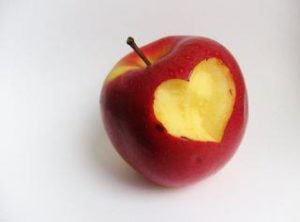Rosh Hashanah Feast Serves Up Symbolism
Jewish holidays like Rosh Hashanah are filled with rituals, tradition, and symbolism that nourish the body and the soul through food, and we’re not talking about brisket and matzo ball soup that always earn a spot on the menu.
The rich and abundant foods served on Rosh Hashanah are called simanim, which means “signs†or†indicators.†Like the special foods we eat at a Passover seder, simanim give us a taste of Jewish wisdom by directing us to improve ourselves and return to a life with more purpose and meaning. This idea of teshuva is what the High Holidays is all about, little did we know it tasted so good, with a dash of Yiddish pun.
So, let’s dig in! Continue reading
Sukkot Celebrates Fall Harvest…And Much More
Now that Yom Kippur is over and the hard work is done, it’s time to get ready for the next Jewish holiday, Sukkot (Hebrew word for booths or huts),  a week-long harvest festival that begins Sunday night, five days after Yom Kippur.
The festival of Sukkot is one of the three great pilgrimage festivals—the others are Passover (April 8-16) and Shavuot (May 28-30). These holidays celebrate both agricultural festivals and historical events in the history of the Jewish people, when in ancient times Jewish people traveled to the Temple in Jerusalem. In Israel, Sukkot is a major holiday, no work, no school, and everyone is outdoors sharing meals, singing songs, and giving thanks for the bounty of another season.
Also known as the Feast of Tabernacles, Sukkot is like the American holiday Thanksgiving in that we give thanks for another season of crops that will sustain us, but it is so much more. Sukkot ranks right up there in important holidays because it commemorates the time when we received the Torah at Mount Sinai, were freed from slavery, and wandered the desert for 40 years to the Promised Land. Jews today are still on a journey, and holidays like Sukkot remind us to free ourselves from the material things that often keep us in bondage. It’s a time to detach from the comforts we are accostomed to inside our houses and reconnect with the natural wonders that sustain us inside a flimsly little hut called a sukkah (singular word for Sukkot). Continue reading


